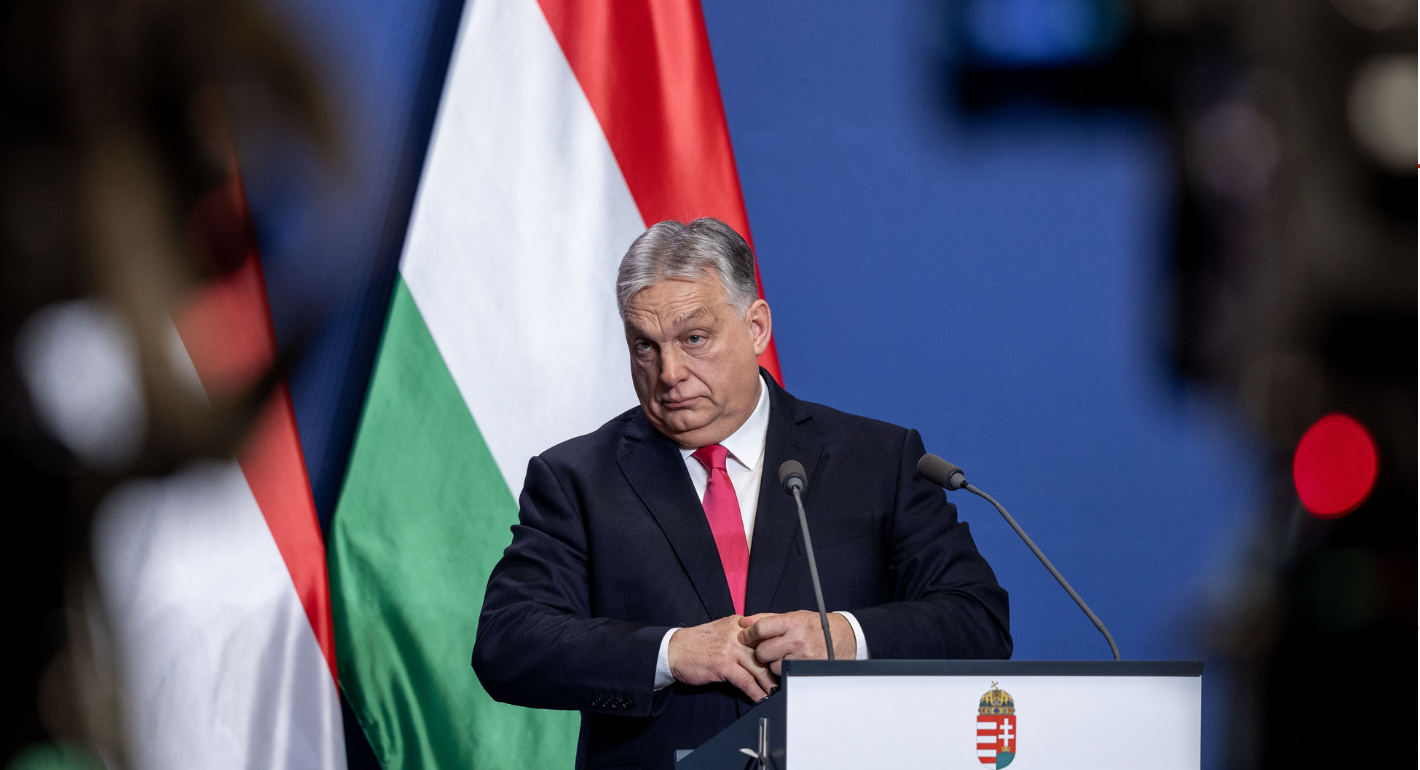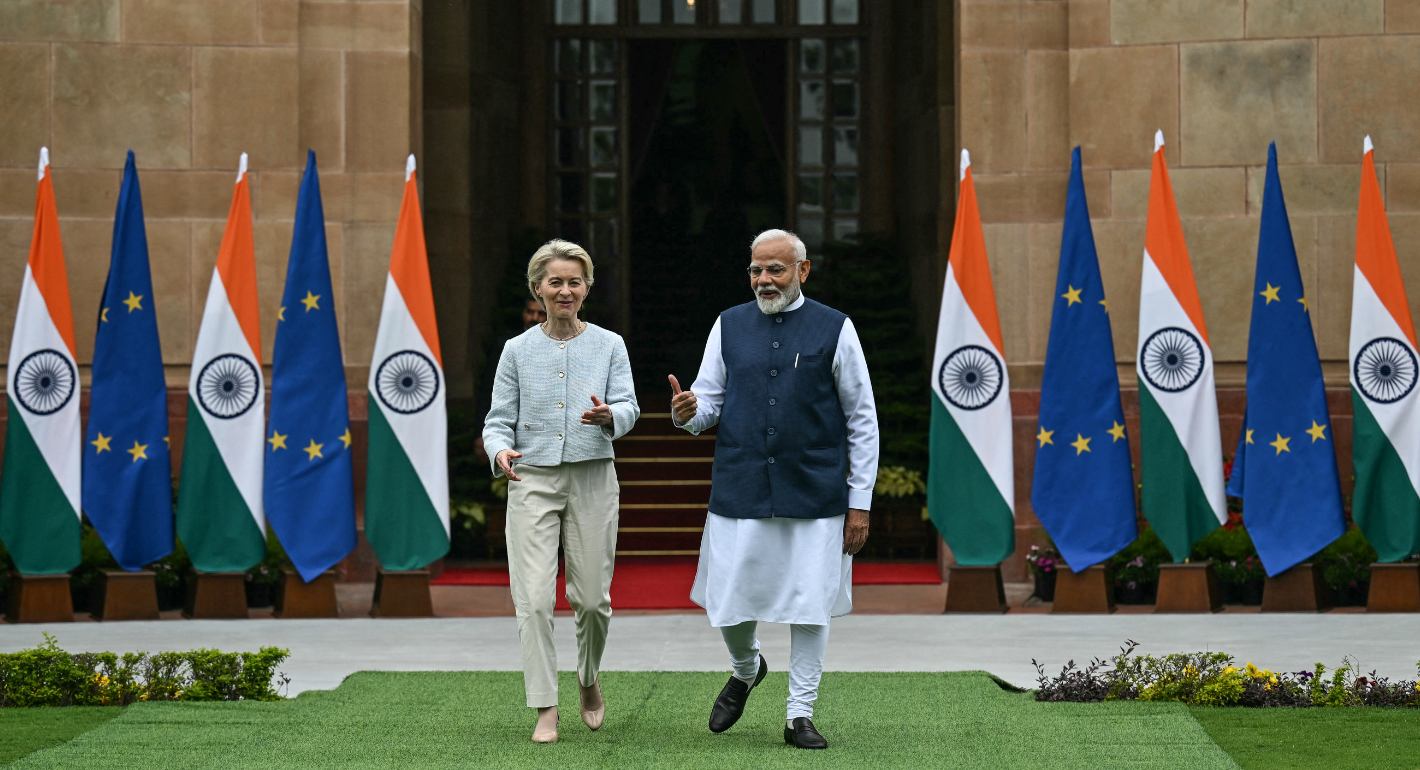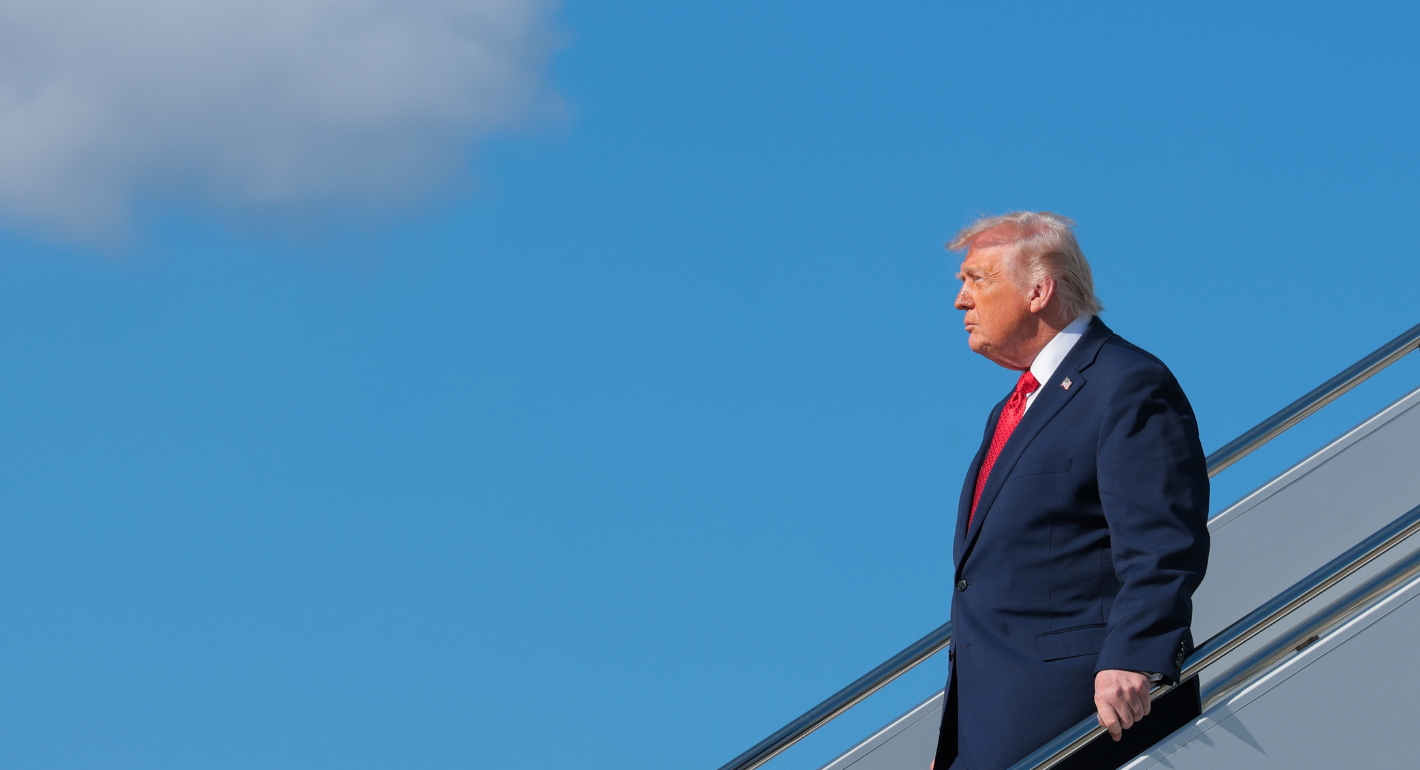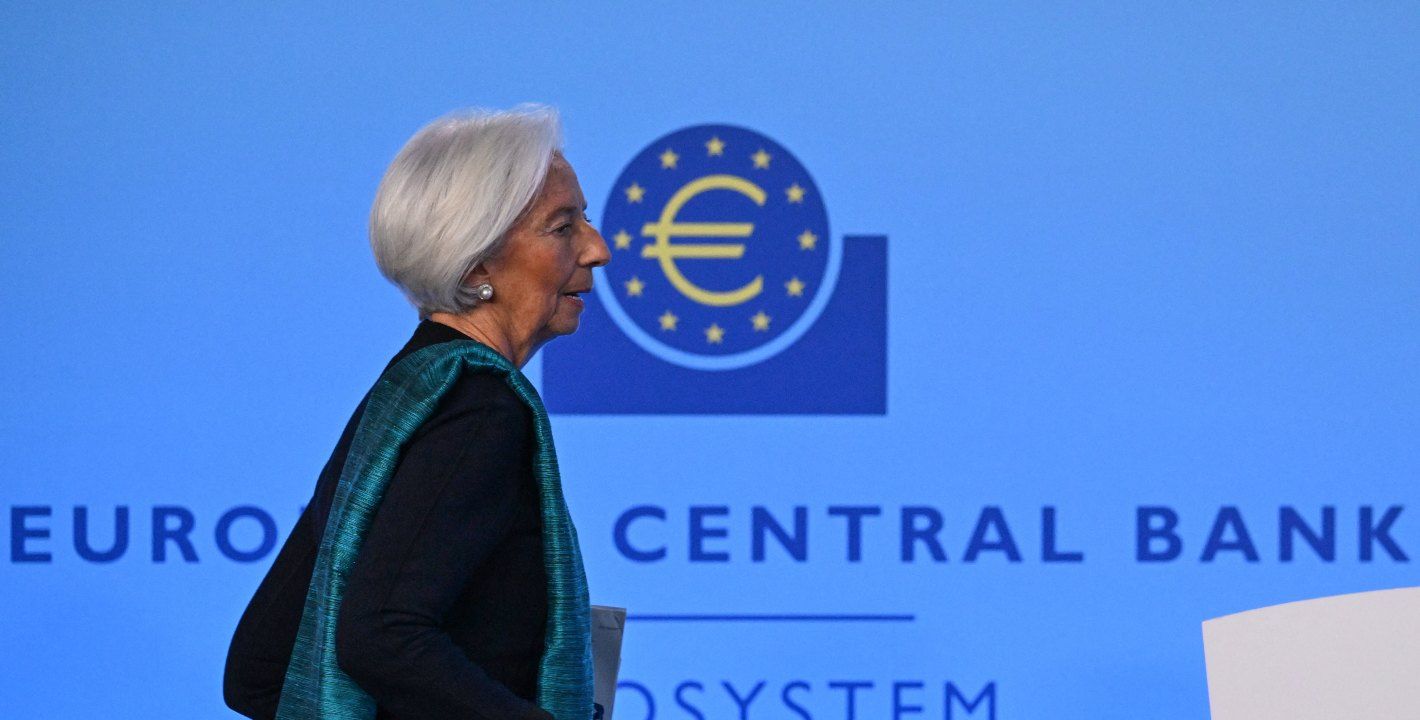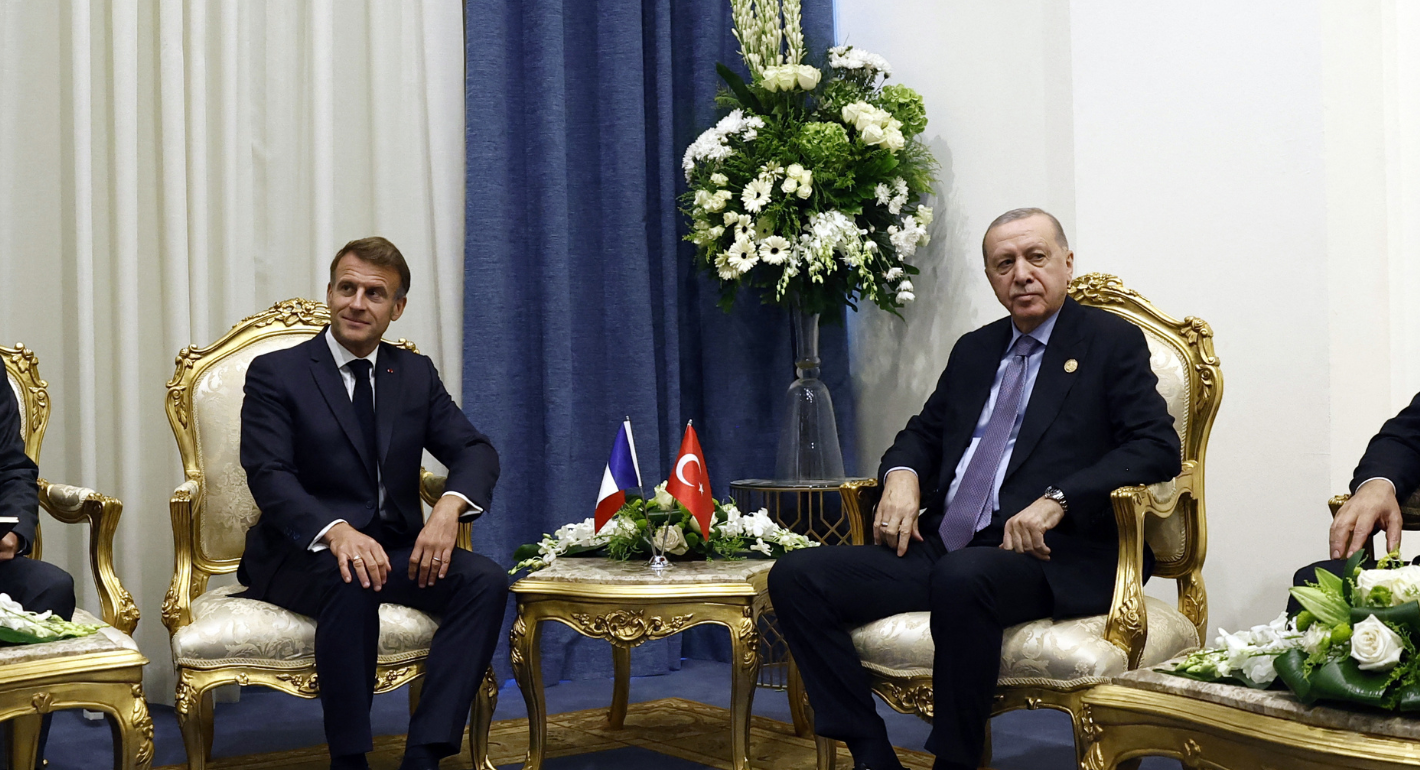Time for Strategic Europe’s annual summer reading suggestions! Carnegie Europe has asked a cross-section of diplomats, policymakers, and analysts to share their favorite books.
Kris BledowskiDirector of economic studies at the Manufacturers Alliance for Productivity and Innovation
Foreign Policy
Anders gemeinsam (Together but Differently) by Wolfgang Schäuble/Ulrich Wickert and Michel Sapin/Dominique Seux. A crisp, no-nonsense give-and-take on burning issues facing Europe—from refugees via Greece and ever-closer union to intricate domestic politics intelligible only to Germans. Set as a free-flowing conversation between the Germans and the French, the dialogue lays out how differently the two neighbors reason and articulate yet strive passionately to come to common conclusions.
Fiction
Tales of Mystery and Imagination by Edgar Allan Poe. A collection of short stories that mix horror, mystery, and detective deduction, these gems are beautifully set in the English vernacular. I enjoyed the imaginative genius as much as the mastery of the language.
Home Country (Poland)
Priceless by Zygmunt Miłoszewski. A fast-paced thriller set in Communist-era Poland, this long narration mixes fiction and history to move the reader around the globe at breakneck speed. Think James Bond but with more cliff-hangers and faster speeds.
Guilty Pleasure
Canada-Québec : Synthèse historique, 1534–2000 (Canada-Quebec: Historical Summary, 1534–2000) by Jacques Lacoursière, Jean Provencher, and Denis Vaugeois. This massive history of lands that roughly correspond to Lower Canada is told through the eyes of French-Canadian historians. It remains refreshingly neutral in political tone, which gives the narrative credibility to a non-Canadian reader. A go-to reference for all those who are mystified by the province’s complicated politics and need a deeper backdrop.
William J. BurnsPresident of the Carnegie Endowment for International Peace
Foreign Policy
The Long Game by Derek Chollet. An eloquent new book about U.S. President Barack Obama’s foreign policy by a very thoughtful friend and former colleague.
Fiction
All the King’s Men by Robert Penn Warren. A classic American novel about the dangers of populist leaders, especially relevant in this strange political season.
Home Country (United States)
Memoirs, Volume I (1925–1950) by George F. Kennan. A beautifully written memoir by a brilliant and consequential American diplomat.
Guilty Pleasure
Dream Team by Jack McCallum. A great account of America’s 1992 men’s Olympic basketball team.
Sarah ChayesSenior associate in Carnegie’s Democracy and Rule of Law Program and South Asia Program
Fiction
Bernard Cornwell’s The Saxon Stories about England at the time of King Alfred, or Conn Iggulden’s Conqueror series about the Mongols.
Home Country (United States)
Gathering Moss: A Natural and Cultural History of Mosses by Robin Wall Kimmerer.
Guilty Pleasure
Tribe: On Homecoming and Belonging by Sebastian Junger. (Guilty because we’ve been friends for half a century, so it feels a bit like nepotism to put it on my list.)
Judy DempseyNonresident senior associate at Carnegie Europe and editor in chief of Strategic Europe
Foreign Policy
White Spots—Black Spots: Difficult Matters in Polish-Russian Relations, 1918–2008, edited by Adam Daniel Rotfeld and Anatoly V. Torkunov. This is a fascinating, gripping, and monumental service to history. Two sets of historians, Polish and Russian, give their own versions of Polish-Russian relations in chapters that span ninety years. You can hear in the pages the controversies, the tensions, and the narratives. The editors have done a terrific job in shepherding through this unique Polish-Russian group of experts. Imagine a volume on Russia and the Baltic states!
Fiction
Oblivion by Sergey Lebedev. A beautifully written and special novel about the Soviet prison camp system narrated by a young boy who when older embarks on a journey to discover the landscape of the gulag.
Home Country (Ireland)
The Best of Myles by Myles na gCopaleen (aka Flann O’Brien, nom de plume of Brian O’Nolan). These stories are a delight to return to. They consist of satirical columns O’Nolan wrote for the Irish Times. The humor, fun, and wit are contagious—I hope for non-Irish readers, too.
Guilty Pleasure
Submission by Michel Houellebecq. Like him or loathe him, this novel combines satire and disdain for the political class and many other centers of power as Houellebecq narrates an Islamic takeover of France, helped by the oil-rich countries of the Middle East, especially Qatar. It was written before the collapse of oil prices when these countries were awash with cash.
John R. DeniResearch professor of national security studies at the Strategic Studies Institute of the U.S. Army War College
Foreign Policy
A Kim Jong-Il Production: The Extraordinary True Story of a Kidnapped Filmmaker, His Star Actress, and a Young Dictator’s Rise to Power by Paul Fischer. I actually read this a few months ago but felt compelled to include it here. It’s not a policy book as such, but it is a truly amazing story that offers great insights not only into the DPRK but also into the collective psychosis that grips an authoritarian state and all its citizens. I couldn’t put it down once I started.
Fiction
Fiction? Who has time for fiction? If I must, I’d choose Look Who’s Back by Timur Vermes (originally published in German in 2012 as Er ist wieder da, the English translation finally out in 2015), a very funny novel for us history geeks, decisively undermining the notion that Germans don’t do satire.
Home Country (United States)
Putin’s Kleptocracy: Who Owns Russia? Karen Dawisha’s excellent scholarship and clear writing expose the kleptocratic tribute system that is the Russian authoritarian regime today. It gives the lie to the notion that Russia can somehow be transformed—if only we applied more diplomacy, understanding, time, openness, aid, trade, civil society support, and so on—into a European-like country.
Guilty Pleasure
Anything by David Sedaris.
Steven ErlangerLondon bureau chief at the New York Times
Foreign Policy
Global Inequality: A New Approach for the Age of Globalization by Branko Milanovic. Not the easiest read, but vital to understand why populism is rising in Europe and the United States. A sometime collaborator with Thomas Piketty (Capital), Milanovic is outstanding.
Fiction
Submission by Michel Houellebecq. A beautifully written and structured dystopia about France and collaboration. This time, with Islam.
Home Country (United States)
Honeydew and Binocular Vision by Edith Pearlman. Two volumes of sharp, witty, wonderful short stories about the human comedy.
Guilty Pleasure
The Whites by Richard Price. A New York policier of the highest quality.
Florence GaubSenior analyst at the EU Institute for Security Studies
Foreign Policy
Local is the new international. Alexandre Najjar’s Le roman de Beyrouth (The Novel From Beirut) is a fictional account of Lebanese local history in the twentieth century, teaching you the Middle East in an entertaining way. It also makes you look like a local when you wander the streets of Beirut and throw in a casual “Did you know Pierre Gemayel had his pharmacy here?”
Fiction
Bored of Tunisian politics? Pick up Gustave Flaubert’s Salammbô, which makes Carthage in the third century BC look like Las Vegas. Based on the story of Hannibal’s sister, the book is a North African spin on Flaubert’s much more known Madame Bovary with better costumes.
Home Country
From Germany: Die Herren (The Gentlemen) by Angelika Schrobsdorff. Advertised as a “psychological-erotic novel,” the 1961 novel had to endure substantial censorship due to its amoral portrayal of a young woman. Surprisingly modern, it’s a bit of an intellectual postwar German Sex and the (destroyed) City. The newly released version has the censored elements in it, which are unsurprisingly tame by today’s standards.
From France: Alfred Jarry’s Ubu Roi (Ubu the King) is a hysterically funny, absurd, and pointless play that will make you laugh without knowing why. An excellent practice in this day and age.
Guilty Pleasure
Hollywood Wives by Jackie Collins. Because nothing relaxes a policy brain like mindless literature on decadence and drama. It has also enriched my English vocabulary in unexpected ways!
Dalia Ghanem-YazbeckNonresident scholar at the Carnegie Middle East Center
Foreign Policy
I don’t know if we can consider it foreign policy, but I am reading ISIS: The State of Terror by Jessica Stern and J. M. Berger. The book explores how the self-proclaimed Islamic State is a 2.0 jihadist movement and how it has better know-how than any other group. A quote that can summarize the book is “If Al Qaeda was publicity shy . . . ISIS, in contrast, is a publicity whore.”
Fiction
Les putes voilées n’iront jamais au Paradis ! (Veiled Whores Will Never Enter Heaven!) by Chahdortt Djavann. A powerful title for a powerful book. Between fiction and documentary, the book discusses the aberrations of the Sharia system in Iran and the prostitution of women (from all ages and all social categories), which is a social phenomenon and not an epiphenomenon.
Home Country (Algeria)
La dernière nuit du Raïs (The Last Night of the Raïs [President]) by Yasmina Khadra. An amazing and powerful book in which Khadra puts himself in the shoes of former Libyan strongman leader Muammar Qaddafi during his last night before his fall and lynching by an angry mob. A vertiginous plunge into the head of a man who did not see himself as a tyrant but as the father of a nation that was a bunch of tribes and that he reunited.
Guilty Pleasure
Listening to The Very Best of Marvin Gaye . . . and watching Game of Thrones.
Paul HaenleDirector of the Carnegie–Tsinghua Center for Global Policy
Foreign Policy
Dreadnought: Britain, Germany, and the Coming of the Great War by Robert K. Massie. While no comparison to Barbara Tuchman’s books on the same time period, Dreadnought provides a thorough look at the role of the British and German navies and monarchs in the great arms race that led to World War I, with relevant lessons for anyone studying current dynamics in the South China Sea.
Fiction
To Live by Yu Hua. A recommendation by the Carnegie–Tsinghua Center’s government relations coordinator, Thena Li, this is the account of a Chinese man and his family’s experiences through four decades of modern Chinese history, shaped by political, cultural, and societal transformation.
Home Country (United States)
Destiny and Power: The American Odyssey of George Herbert Walker Bush by Jon Meacham. An important reminder, amid the current political circus, of a U.S. president who appreciated diplomacy, sought out consensus, and believed compromise was not a dirty word. A great account of 41’s remarkable life.
Guilty Pleasure
Where the Hell Have You Been? by Tom Carver. The incredible story of adventure and bravery of Carver’s father, Richard Carver, and step-grandfather, Field Marshal Viscount Montgomery. I read it recently and sent it to my uncle for Father’s Day.
Kristina KauschNonresident associate at Carnegie Europe
Foreign Policy
Neo-statecraft and Meta-geopolitics: Reconciliation of Power, Interests and Justice in the 21st Century by Nayef Al-Rodhan. This is no beach material, and the title may be slightly off-putting. But it is a book I often come back to as it does a marvelous job in capturing the complexities of geopolitical theory in a manageable number of pages.
Fiction
Embers by Sándor Márai. Written in 1942, this strangely gripping novel about a lifelong secret was translated into English only in 2000, leading to a posthumous Márai boom. Set on the eve of the outbreak of World War II, this thin little novel breathes an air of decay and unraveling that feels disturbingly topical.
Home Country (Germany)
Couchsurfing im Iran (Couchsurfing in Iran) by Stephan Orth (so far in German only). The title’s counterintuitive shattering of stereotypes is continued throughout this German journalist’s anecdotal, highly enjoyable travel report.
Guilty Pleasure
Pride and Prejudice by Jane Austen. The chick flick of classical literature.
Lina KhatibHead of the Middle East and North Africa Program at Chatham House
Foreign Policy
A Line in the Sand: Britain, France and the Struggle that Shaped the Middle East by James Barr. It was General Sir David Richards who recommended I read this book about the 1916 Sykes-Picot Agreement because of what it reveals about how far even allies like Britain and France can go to undermine one another in their bid for influence abroad.
Fiction
The Revenant: A Novel of Revenge by Michael Punke. A story about an incredible and unexpected comeback now made popular by an Oscar-winning film, showing that revenge is a dish best served cold.
Home Country (United Kingdom)
Taking Command by General Sir David Richards. A most inspiring autobiography about leadership and the fundamentality of telling truth to power. Its critical take on the mishandling of the Syrian conflict is a sobering reminder of what strategy really means.
Guilty Pleasure
Life by Keith Richards. The passion for music shines through this riveting tale of going for it and getting away with it.
Sergey LebedevAuthor
Foreign Policy
Iron Curtain: The Crushing of Eastern Europe, 1944–1956 by Anne Applebaum—very important reading at a time when the next curtain is ready to be installed. And The Last Day of the Old World: 3rd September, 1939 by Adrian Ball—a chronicle of illusions, hesitancy, and bravery in one moment between peace and war.
Fiction
Education nocturne (Educated by Night) by Luba Jurgenson. First written in French, then self-translated and rewritten into Russian, this novel about the Holocaust gives Russian literature a new example of how to write about the traumatic past using metaphoric language.
Home Country (Russia)
The Smoke of War: Volunteer’s Diary by Valery Aramilev. One of the most interesting analyses of Russia’s patriotic surge on the eve of World War I, this book offers perfect material to compare with Russia’s ideology and propaganda today.
Guilty Pleasure
Airship: Design, Development and Disaster by John Swinfield. A poesy of the disappeared breed of flying behemoths that dominated the skies in the late 1920s and early 1930s, symbols of an approaching globalized world that never came into existence.
Bruno MaçãesNonresident associate at Carnegie Europe
Foreign Policy
A Study of History by Arnold J. Toynbee. Better than Samuel P. Huntington on the main foreign policy question: civilizations and why they clash.
Fiction
Kokoro by Natsume Sōseki. Written by someone who understood both East and West, Kokoro can be read 1,000 times without being exhausted.
Home Country (Portugal)
The Book of Disquiet by Fernando Pessoa. Heart and mind combined. A thing of wonder.
Guilty Pleasure
I read philosophy of science all the time. Ours is a scientific civililization; you need to understand science to understand everything else.
Mikhail MinakovAssociate professor in the Department of Philosophy and Religious Studies at the National University of Kyiv-Mohyla Academy and editor in chief of the Ideology and Politics Journal
Foreign Policy
The Global Transformation: History, Modernity and the Making of International Relations by Barry Buzan and George Lawson.
Fiction
The Kindly Ones by Jonathan Littell.
Home Country (Ukraine)
The Master and Margarita by Mikhail Bulgakov.
Guilty Pleasure
Bloodlands: Europe Between Hitler and Stalin by Timothy Snyder and Warped Mourning: Stories of the Undead in the Land of the Unburied by Alexander Etkind.
Jonas Parello-PlesnerHead of foreign policy at the Embassy of Denmark in Washington, DC
Foreign Policy
I have just finished Alter Egos by New York Times journalist Mark Landler, an up-to-date account of the foreign policies of U.S. President Barack Obama and former secretary of state Hillary Clinton tracking their reactions to Syria, the self-proclaimed Islamic State, and Russia. Mandatory reading to prepare for the foreign policy universe of a Clinton presidency. I’m also halfway through The Pivot by scholar-cum-diplomat Kurt Campbell, an inside account of the U.S. rebalance to Asia under Obama and Clinton.
Fiction
During a couple of rainy days in the summerhouse in Denmark, I clicked through the mesmerizing pages of David Mitchell’s The Bone Clocks, which starts in 1980s suburban England and ends in the 2030s, when resources are scarce and China leases part of Ireland. Mitchell is a worthy successor to the erudite writings of Umberto Eco (RIP), whose last book, Numero Zero, I still have in Kindle storage.
Home Country (Denmark)
I press the repeat button on this: Out of Africa by Danish writing goddess Karen Blixen, often known in the Anglophone world by her pseudonym Isak Dinesen. My favorite is Seven Gothic Tales, great storytelling that breathes beauty into the Danish language.
Guilty Pleasure
I reread George Orwell’s Animal Farm with my two sons. We chose our favorite animals. I went for Benjamin, the ever-skeptical donkey. Reread it for its ever-valid critique of creeping authoritarianism and pick which animal you would be.
Roderick ParkesSenior analyst at the EU Institute for Security Studies
Foreign Policy
At the time, this incident was dressed up as an example of great British spirit, when really it came down to a petty rivalry between two English aristocrats, Lucan and Cardigan. The Reason Why by Cecil Woodham-Smith deflates the myths behind the Charge of the Light Brigade, the 1854 disaster that saw 600 British cavalrymen choose to ride to certain death, and reveals its distinctly unheroic political motives.
Fiction
I think I understood the subtext in the Radetzky March, recommended here last year by a journalist, about an unimaginative bureaucrat who in 1914 fails to notice how the empire he serves is collapsing. My own recommendation is not fiction: Ernst Toller’s I Was a German is about the doomed attempt of a bunch of writers to set up a people’s republic in 1919.
Home Country (Isle of Man)
From home, I can offer the Dadaist poetry of Kurt Schwitters (interned on the Isle of Man), the Flashman books of George MacDonald Fraser, and of course the erotic bodice rippers of the late great Charlotte Lamb (Temptation, since you ask). My Dad unwittingly bought Lamb’s library in a car boot sale last year and has had his eyebrows pinned to the back of his head ever since.
Guilty Pleasure
I’ve been reading the memoirs of various oddball ancestors who lived in far-flung places—soul-searching about where I belong, and what the citizenship rules are. You can download The Adventures of Dunsterforce free online. Lionel Dunsterville led a secret army through neutral Iran to defend Baku from the Germans and Turks. Fascinating for its geopolitics, but also to see a man applying to Caucasus Bolsheviks the tactics learned in his Indian homeland. Dunsterville wrote this memoir in the place he ended up—turns out that was the Isle of Man.
Gianni RiottaMember of the Council on Foreign Relations
Foreign Policy
The Industries of the Future by Alec J. Ross. Populism springs up in the United States and Europe from a lack of jobs. Without growth, our democracies are yet again at risk. Ross, a former adviser to U.S. Democratic presidential candidate Hillary Clinton, is not a dreamy futurist but delivers an impassioned appeal for a fair new economy.
Fiction
War’s Unwomanly Face by Svetlana Alexievich is by far the best book by the 2015 Nobel prize winner for literature. It is a work of narrative drawn from interviews with old women, veterans of World War II. You will be moved by their pride, their romance, and their grit in a war they fought often having left as girls to return home as scarred heroines.
Home Country (Italy)
Severino Cesari, the fiction editor at the publisher Einaudi, has been sick for a while, and every day on Facebook he publishes the diary of his struggle. While fighting for his life, Cesari is funny, endearing, and brave and gathers thousands of readers online. His book will be published by Rizzoli in the fall but in its digital version is already a masterpiece.
Guilty Pleasure
Dumas, Simenon, Conan Doyle, and Collodi (Pinocchio’s dad) never won a Nobel, Booker, Medici, or Pulitzer prize. Critics frown on the mass fiction the late Umberto Eco taught us. So read two great contemporary writers whom future critics will love: George R. R. Martin, author of the Game of Thrones saga, and J. K. Rowling, Harry Potter’s mom. Martin explains the world of Syria, the Islamic State, Boko Haram, Donald Trump, Marine Le Pen, Brexit, Hillary Clinton, Bernie Sanders, Vladimir Putin, and Beppe Grillo better than Henry Kissinger does, while Rowling teaches us that magic, not a business plan, will save the world and our souls.
Jamie SheaDeputy assistant secretary general for emerging security challenges at NATO
Foreign Policy
Authoritarianism Goes Global: The Challenge to Democracy, edited by Larry Diamond. The rise of illiberal powers has become one of the most worrying developments in global politics. This book gives an excellent overview of the challenge of new authoritarianism and provides many insights into how these regimes increase their control over their own societies. It is a wake-up call to established democracies to counter this virus in their own ranks before it spreads even further.
Fiction
The Neapolitan quartet by Elena Ferrante. I have read the first two novels in this series, My Brilliant Friend and The Story of a New Name, and fortunately still have the last two to enjoy over the summer. Describing the relationship between two women from childhood until advanced middle age, Ferrante gives a brilliant portrayal of the poorer and darker side of Naples in the 1950s and 1960s. Ferrante is not only brilliant at describing the complexity of social relations but also gives wonderful insights into friendship, love, jealousy, and even the abiding character of hatred.
Home Country (United Kingdom)
The House by the Lake: A Story of Germany by Thomas Harding. This is a very original history of modern Germany, told through the prism of a small house by a lake just outside Berlin. By recounting the stories of the five families living successively in this house, latterly owned by the author’s grandmother, from the 1890s right up to 2014, Harding is able to convey the sense of how the dramatic events in twentieth-century Germany affected the lives of individual Germans.
Guilty Pleasure
Republic of Spin: An Inside History of the American Presidency by David Greenberg. When I served as the NATO spokesman in the 1990s, I was referred to as a “spin doctor” and even by then Serbian president Slobodan Milošević as “the king of spin.” So I greatly enjoyed reading Greenberg’s account of the efforts of various U.S. presidents since Teddy Roosevelt to get their message across to the American republic via the media. It is a very entertaining and well-sourced account, which reveals that there is no perfect strategy for handling the press and that even the greatest spinmeisters have had their bad days as well as their triumphs.
Jan TechauDirector of Carnegie Europe
Foreign Policy
Prisoners of Geography: Ten Maps That Tell You Everything You Need to Know About Global Politics by Tim Marshall. This hardcore tome of geopolitics stands in marked contrast to Robert Kaplan’s overrated Revenge of Geography. It is a great eye-opener, is well researched, is free of jargon and vague generalities, and avoids the trap of simplistic, mechanical forecasting that so much geopolitical writing falls into. Analysts and map fans alike will love this.
Fiction
The Night Manager by John le Carré. Novels by this former spy now have a reputation for being serious literature, because le Carré writes so fabulously well and keeps his moralizing subtle enough to be taken for sophistication. He is a keen observer of human folly, and some of his insights are real gems. But he also loves to sell books, so this thriller is above all the stuff of manly daydreams: cool, smart, violent, fast paced, and incredibly sexy.
Home Country (Germany)
Ein Buch nur für meine Freunde (A Book Only for My Friends) by Lion Feuchtwanger. Feuchtwanger, a Jewish critic and novelist, was one of Germany’s preeminent intellectual voices of the 1920s and 1930s. He compiled this selection of 100 essays in 1956 as the essence of his writings from four decades. It is a cornucopia of deep and wide analysis, critical insight, and timelessly beautiful writing. His merciless dissection of anti-Semitism remains frightfully pertinent today.
Guilty Pleasure
Any issue of Tatler magazine. Tatler is Britain’s key debating platform for postmaterial worries. Glossy fantasies of the perfect life and its attributes clash nicely with the ever-present background hum of status angst. Tatler is the perfect bathroom read for anyone with a side interest in anthropology. In a recent anxiety special, the number one piece of advice for readers was: Look at something blue. Priceless.
Maha YahyaDirector of the Carnegie Middle East Center
Foreign Policy
The Great Divide by Joseph Stiglitz—not so much foreign policy as policy. The book explores the impacts of inequality not only on the economy but also on democracy and globalization, with a passionate call for political reform. In some ways it sets the scene for understanding political developments in the United States and in some parts of Europe today. Also The End of Power by Carnegie’s own Moisés Naím, which really helps us understand the ways in which tectonic shifts in power are reconfiguring our world.
Fiction
Carlos Ruiz Zafón’s The Angel’s Game and The Shadow of the Wind, with their hidden library in the labyrinths of Barcelona, a favorite city of mine. These books take us on a fantastical journey with a remarkable sense of place and character. Another recommended author is Jabbour Douaihy, who wrote June Rain, The Vagrant, and The American Neighborhood. His novels capture the nuanced realities of living in the run-up to and during Lebanon’s civil wars and their traumatic impact on a generation.
Home Country (Lebanon)
Rugged Paths by Tarek Mitri presents a firsthand account of the author’s two years as UN special representative to Libya and the trials and tribulations of building political systems and state institutions after the ouster of strongman leader Muammar Qaddafi while trying to manage conflicting interests, both local and international.
Guilty Pleasure
The novels of Jo Nesbø and Henning Mankell, both writers of Scandinavian crime thrillers.


